Apolipoprotein E And Alzheimer Disease
Apolipoprotein e and alzheimer disease. Apolipoprotein E APOE genotype is the major genetic risk factor for Alzheimer disease AD. The Alzheimers Association and the National Institute on Aging sponsored a meeting of experts in Alzheimers disease AD geneticists social scientists and ethicists in Chicago in October 1995 to discuss the use of apolipoprotein E APOE genotyping in Alzheimers disease. Inheritance of specific apolipoprotein E apoE alleles determines in large part the risk and mean age of onset of late-onset familial and sporadic Alzheimer disease.
Risk mechanisms and therapy. The mechanism by which the apoE isoforms differentially contribute to disease expression is however unknown. 1Department of Neuroscience Mayo Clinic College of Medicine Jacksonville FL 32224 USA.
Individuals carrying the ε4 allele are at increased risk of AD compared. Apolipoprotein E apoE-targeting strategies for the treatment of Alzheimers disease. The hallmark pathologies of AD are Aβ plaques composed of aggregated beta-amyloid Aβ and tau tangles composed of hyperphosphorylated aggregated tau.
The ε4 allele of the apolipoprotein E APOE gene is the strongest genetic risk factor for Alzheimer disease AD. Kim J 1 Yoon H 2 Basak J 3 Kim J 2. APOE polymorphic alleles are the main genetic determinants of Alzheimer disease AD risk.
Potential cellular and molecular mechanisms. Apolipoprotein E in synaptic plasticity and Alzheimers disease. Apolipoprotein E Apo-E is a major cholesterol carrier that supports lipid transport and injury repair in the brain.
Apolipoprotein E and Alzheimer disease. APOE ε 4 is associated with an increased risk and lower age of onset of Alzheimer disease. Apolipoprotein E and Alzheimer disease.
Apolipoprotein apo E is a multifunctional protein with central roles in lipid metabolism neurobiology and neurodegenerative diseases. Guojun Bu and colleagues describe the pathogenic links between Apo-E4 and.
Apolipoprotein E Receptors and Modulation of Alzheimers Disease Apolipoprotein E apoE is a lipid carrier in both the peripheral and the central nervous systems.
Pathobiology and targeting strategies Polymorphism in the apolipoprotein E APOE gene is a major genetic risk determinant of late-onset Alzheimer disease AD with the APOEε4 allele conferring an increased risk and the APOEε2 allele conferring a decreased risk relative to the common APOEε3 allele. Apolipoprotein E APOE genotype is the major genetic risk factor for Alzheimer disease AD. Lipid-loaded apoE lipoprotein particles bind to several cell surface receptors to support membrane homeostasis and injury repair in. Alzheimer Diseasegenetics Alzheimer Disease. Alzheimers disease AD is the most prevalent form of neurodegenerative disease currently affecting over 5 million Americans with projections expected to rise as the population ages. Apolipoprotein apo E is a multifunctional protein with central roles in lipid metabolism neurobiology and neurodegenerative diseases. Comment on Arch Neurol. APOE ε 4 is associated with an increased risk and lower age of onset of Alzheimer disease. Apolipoprotein E in synaptic plasticity and Alzheimers disease.
The Alzheimers Association and the National Institute on Aging sponsored a meeting of experts in Alzheimers disease AD geneticists social scientists and ethicists in Chicago in October 1995 to discuss the use of apolipoprotein E APOE genotyping in Alzheimers disease. Apolipoprotein E and Alzheimer disease. Apolipoprotein E in synaptic plasticity and Alzheimers disease. The distribution of apolipoprotein E APOE genotypes as a function of age and sex has been examined in a French population of 417 Alzheimer disease AD patients and 1030 control subjects. APOE polymorphic alleles are the main genetic determinants of Alzheimer disease AD risk. The mechanism by which the apoE isoforms differentially contribute to disease expression is however unknown. In the central nervous system CNS apoE is produced by glial cells is present in high-density-like lipoproteins interacts with several recep.





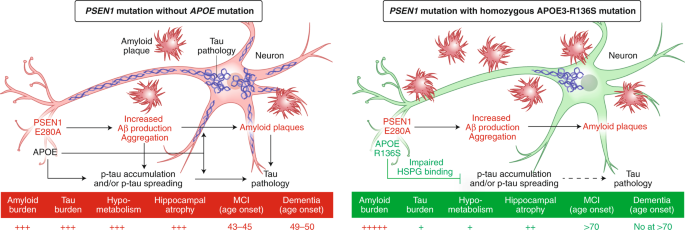
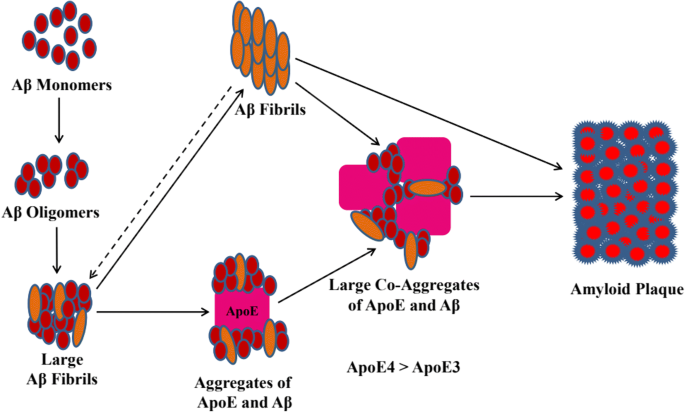


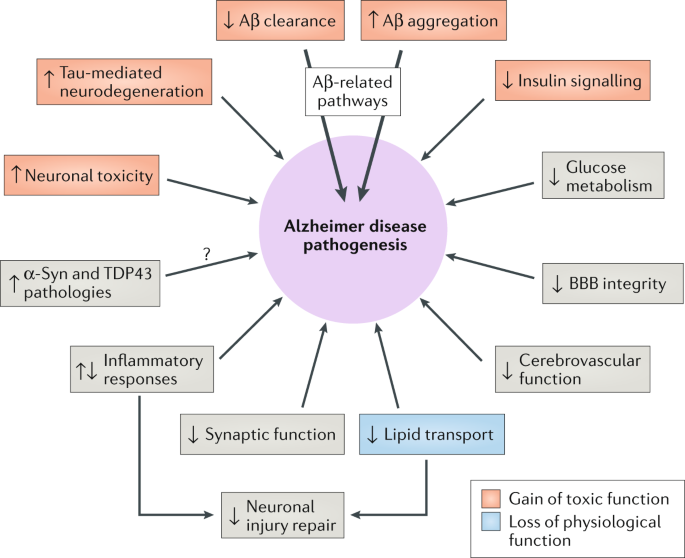

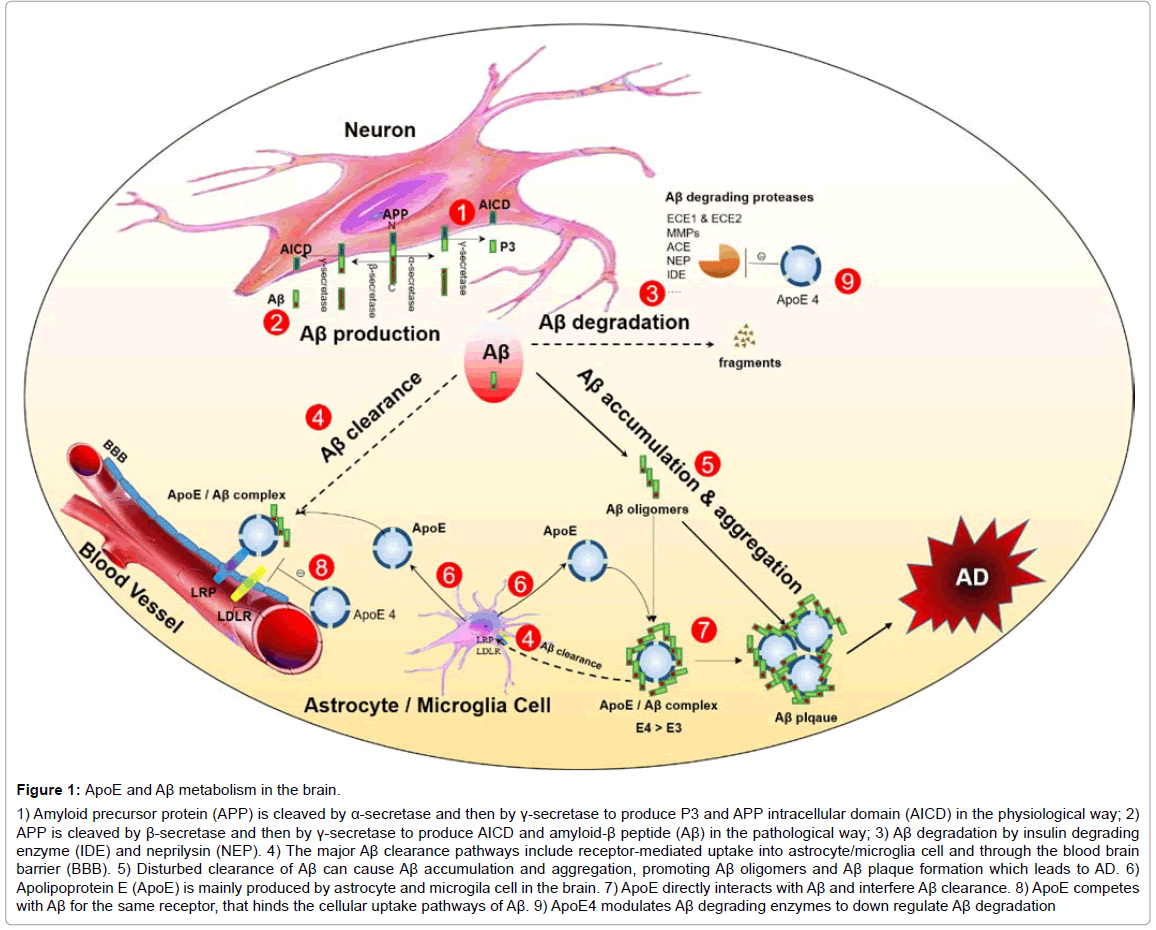


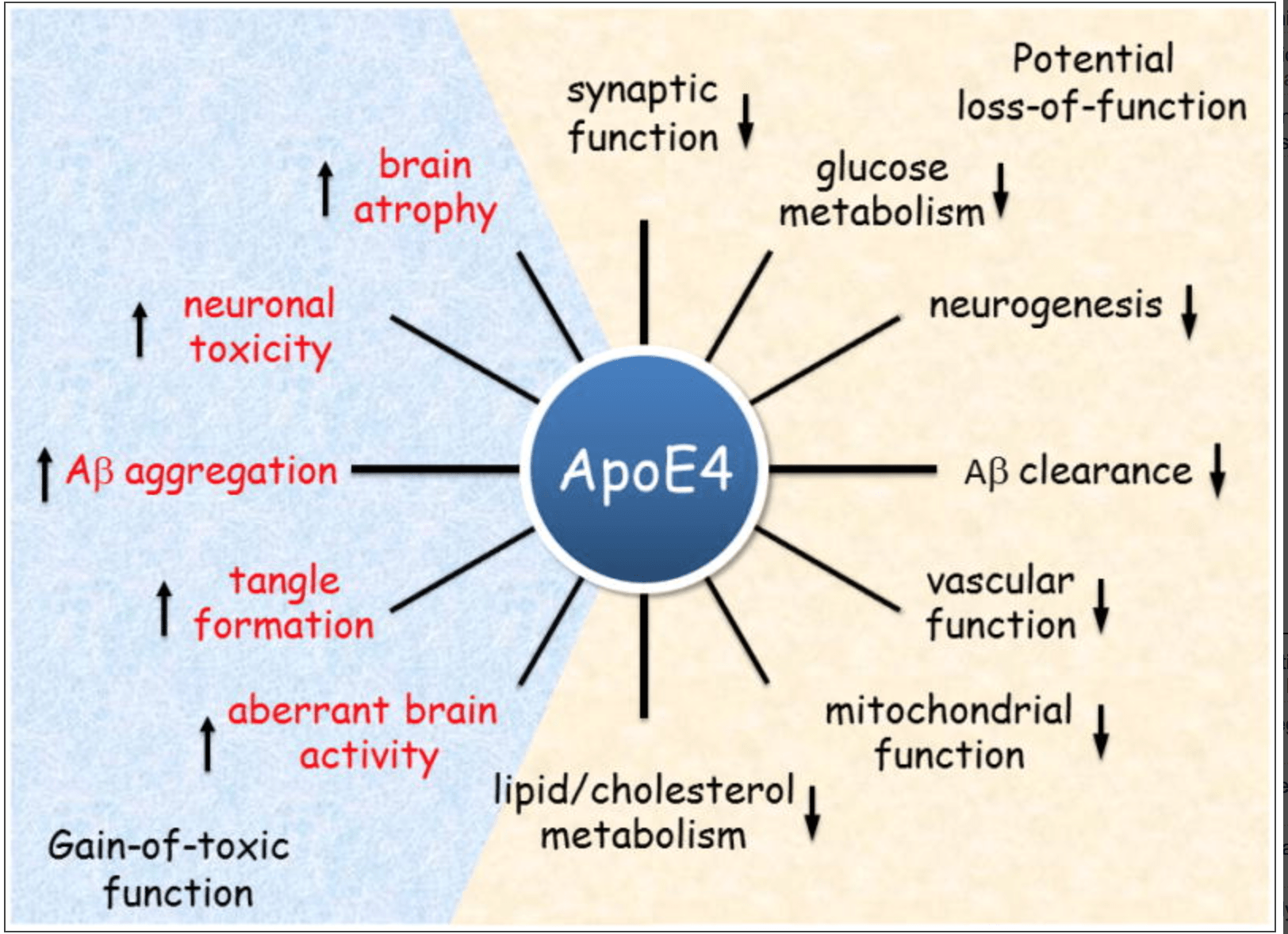


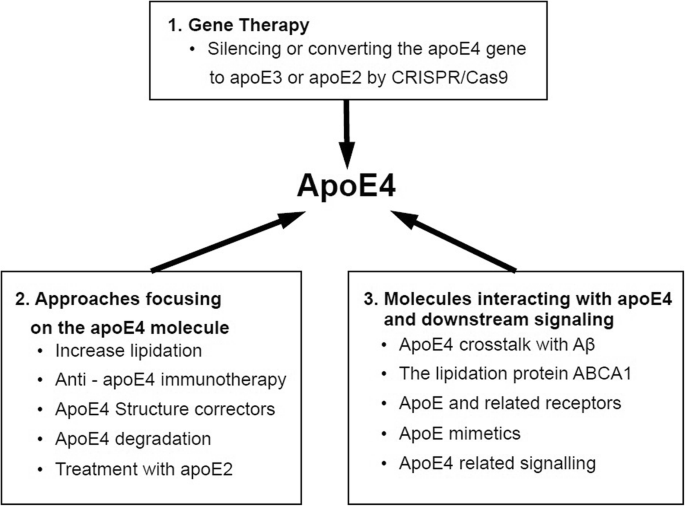
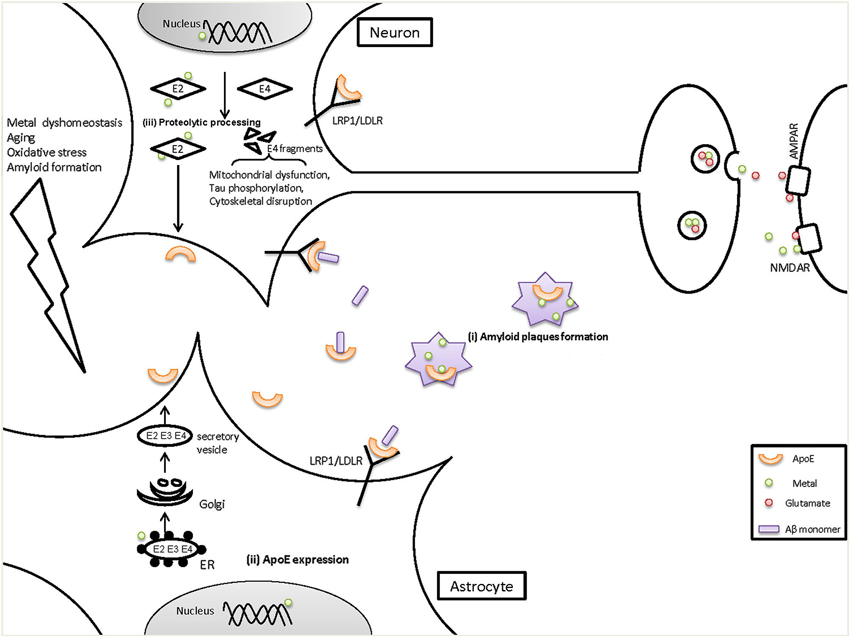
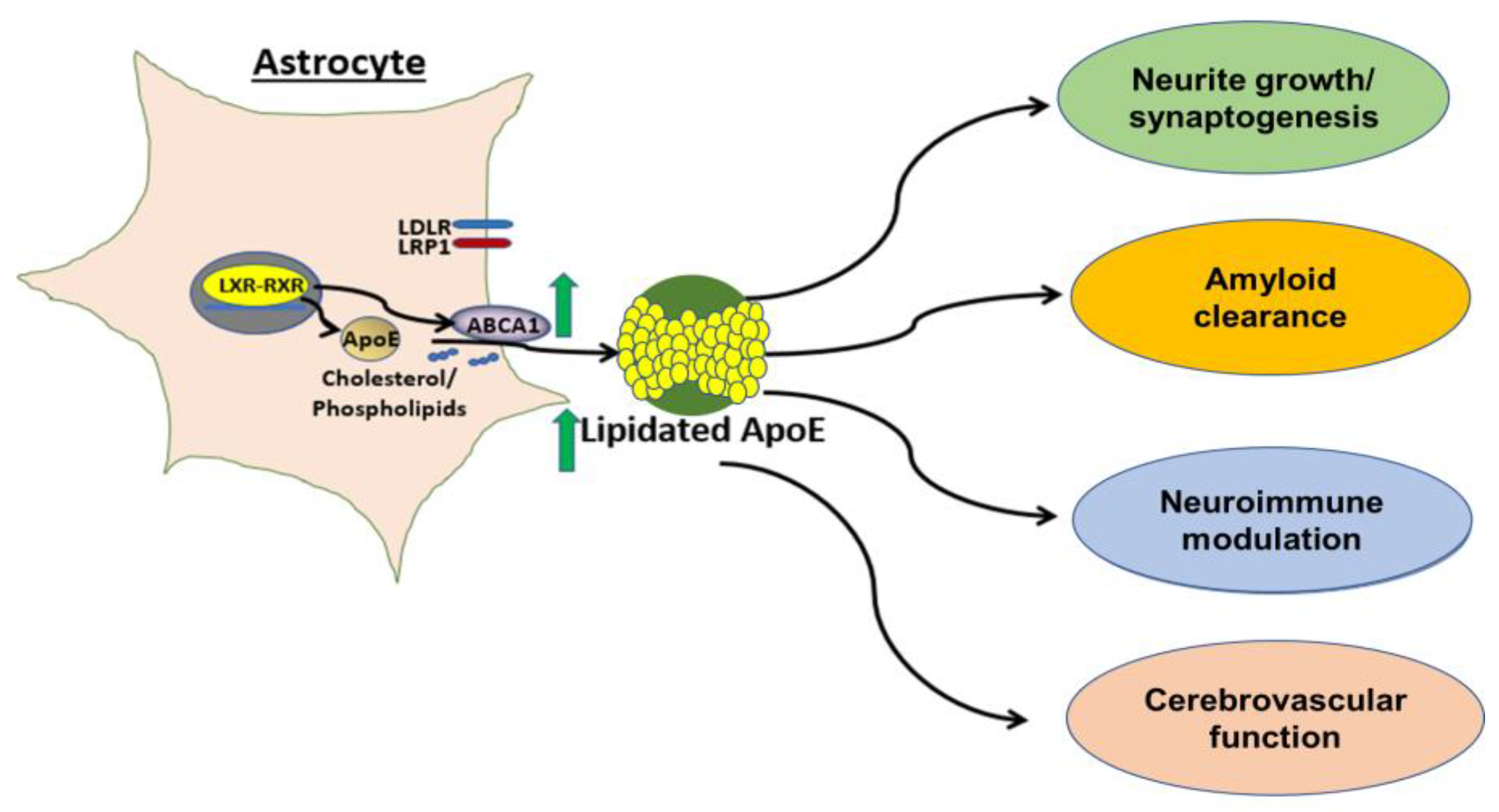
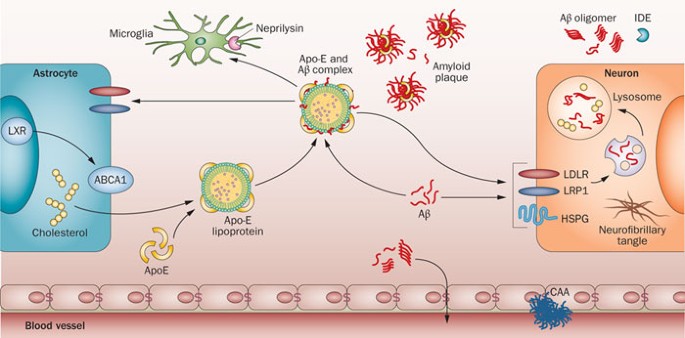
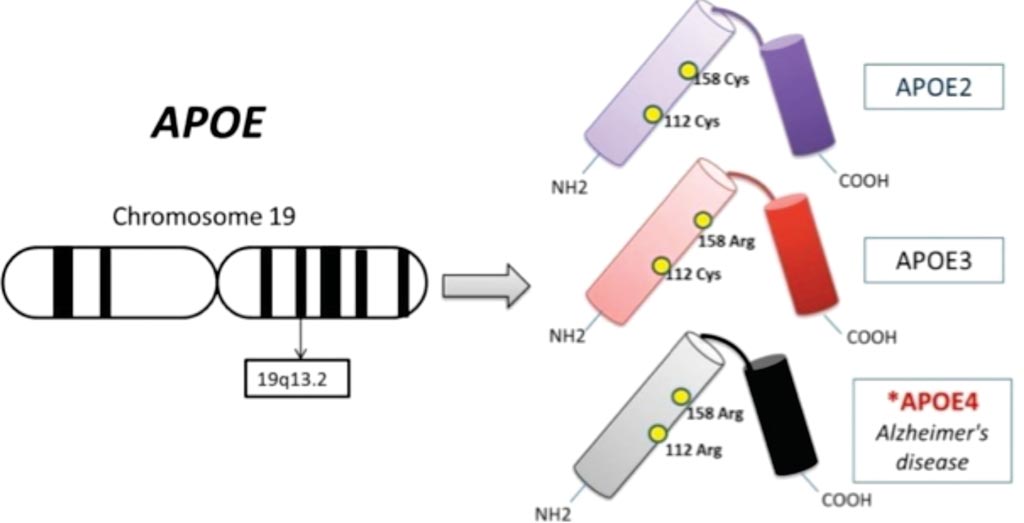

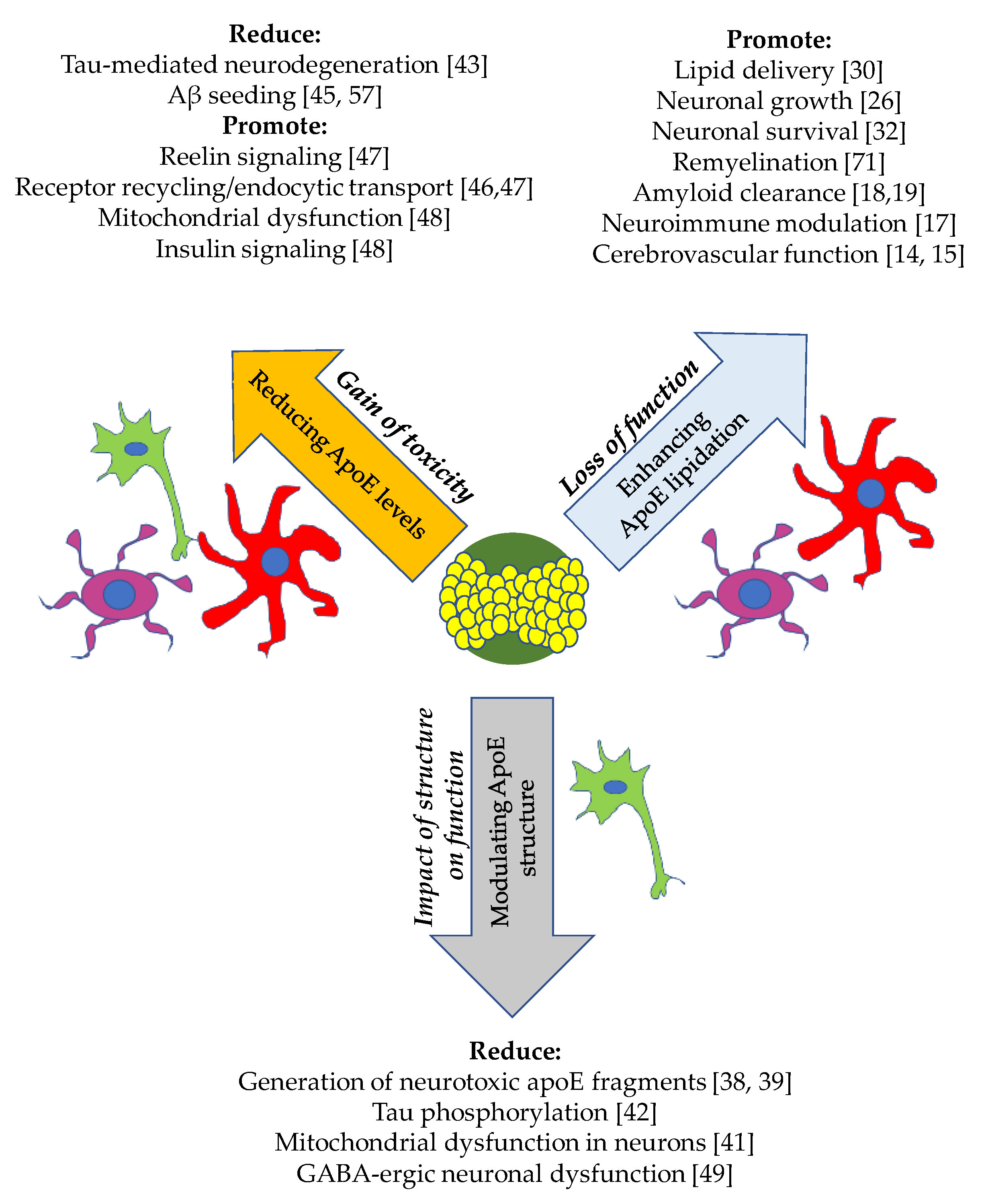
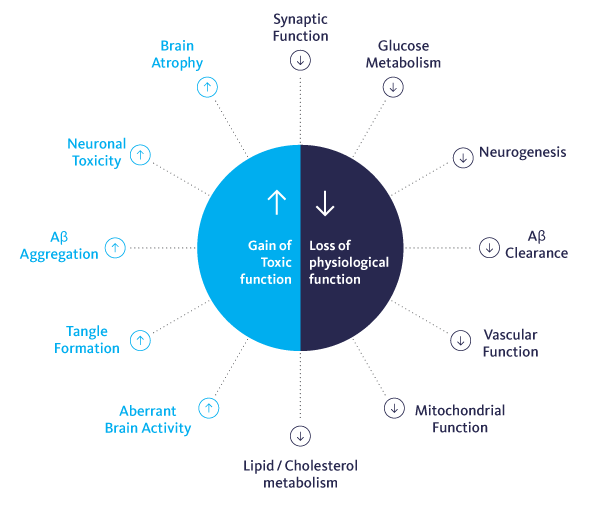





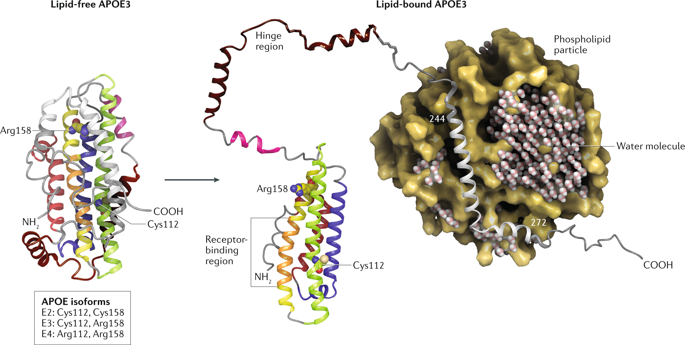
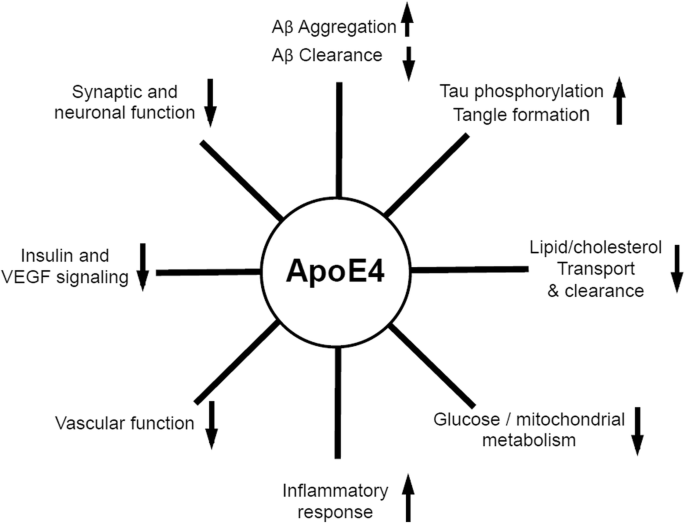













Post a Comment for "Apolipoprotein E And Alzheimer Disease"